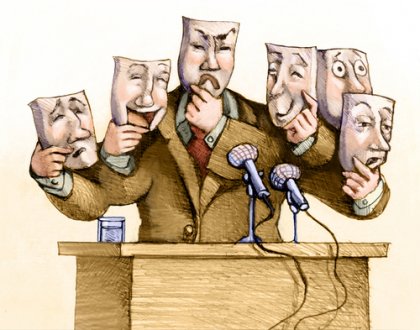The Sleeper Effect: The Influence of The Passage of Time

When we persuade someone, we’re urging them to do, feel, or think something. But what happens over time? The effect of this persuasion will weaken and it’s more likely that others will stop doing, feeling, or thinking what we tried to induce. But this reduction of the persuasion effects due to the passage of time doesn’t always occur. Sometimes even the opposite can happen: the sleeper effect.
A message that tries to persuade us may achieve this when we receive it. However, the sleeper effect makes the message influence us over time. Forgetting who the persuader was is very common. Once we forget who emitted the message, the influence of the message may increase, making our attitude change.
The duration of persuasive messages
The most effective moment for a persuasive message to change an attitude is right after issuing said message. The effectiveness of the message will persist as long as people remember it. Therefore, the more the message is processed, the longer the persuasion will last.
But how do we process another message? The processing will depend partly on the cognitive investment we made. The more cognitive resources we invest in the message, the more likely we are to remember it for a long time. Resources such as paying more attention to the message, trying to understand what it says, reflecting on it, repeating it, talking about it with other people, comparing it to other messages, being able to access the message, etc.

The sleeper effect
Sometimes, a message becomes persuasive over time. Contrary to expectations, as seen in the previous section, changes due to persuasion may take a while to appear. For the effects of persuasion to appear sometime after people receive the message, specific conditions must be met:
- The content of the message and the cues should affect the change of attitude separately. In addition, the message’s content and cues must not influence each other. The cues are composed of everything that doesn’t belong to the content of the message, but that’s still processed. Credibility is one of the most important cues.
- The recipients of the message should analyze it carefully. If the message is a text, the recipients should read it carefully. If, on the other hand, it’s a spoken message, the recipients must listen to it and understand what it says. In addition to analyzing it carefully, recipients must be persuaded by it and they must store the message in their memory.
- The receivers should get a discounting cue, a rejection signal, after getting the message and being persuaded by it in the first place. For example, after carefully listening to a message from a journalist and accepting it due to the information it provides, the message will lose its persuasive effect if we think that the journalist has a low-credibility source.
- Over time, the recipients of the message should forget the effect of the discounting cue to a lesser extent than they forget the content of the message. Keep remembering the content of the message, but forget who said it. In this case, the journalist with low credibility.

The applications of the sleeper effect
The sleeper effect is very useful when we want to persuade people who are very reluctant at first. The effects of persuasion usually last approximately six weeks. When we see commercials that urge us to buy certain products, we usually remember the content of the ads longer than the brand or company that advertised it or even the people who starred in the advertisement. Therefore, depending on your interests and needs, you can either try to avoid the sleeper effect or try to make it more powerful.
Specialists consider that a dissociation between the message and the source happens over time when the sleeper effect occurs. Therefore, some companies choose to introduce similar messages periodically. This is sufficient to stimulate the memory and to prevent that dissociation from happening, therefore avoiding the sleeper effect. That’s why actors in ads are usually always the same. If you forget who they were, they lose credibility. On the other hand, if they’re always the same, they’re more reliable.
On the contrary, on other occasions, it’s more favorable to forget the credibility of the source, especially when the source has a low credibility. In these cases, encouraging the sleeper effect is beneficial. Many politicians have little reliability given their history. That’s why they broadcast their most important messages in a spaced way. They do this so that, when they send a message, people forget they were the ones who issued it but don’t forget its contents.
When we persuade someone, we’re urging them to do, feel, or think something. But what happens over time? The effect of this persuasion will weaken and it’s more likely that others will stop doing, feeling, or thinking what we tried to induce. But this reduction of the persuasion effects due to the passage of time doesn’t always occur. Sometimes even the opposite can happen: the sleeper effect.
A message that tries to persuade us may achieve this when we receive it. However, the sleeper effect makes the message influence us over time. Forgetting who the persuader was is very common. Once we forget who emitted the message, the influence of the message may increase, making our attitude change.
The duration of persuasive messages
The most effective moment for a persuasive message to change an attitude is right after issuing said message. The effectiveness of the message will persist as long as people remember it. Therefore, the more the message is processed, the longer the persuasion will last.
But how do we process another message? The processing will depend partly on the cognitive investment we made. The more cognitive resources we invest in the message, the more likely we are to remember it for a long time. Resources such as paying more attention to the message, trying to understand what it says, reflecting on it, repeating it, talking about it with other people, comparing it to other messages, being able to access the message, etc.

The sleeper effect
Sometimes, a message becomes persuasive over time. Contrary to expectations, as seen in the previous section, changes due to persuasion may take a while to appear. For the effects of persuasion to appear sometime after people receive the message, specific conditions must be met:
- The content of the message and the cues should affect the change of attitude separately. In addition, the message’s content and cues must not influence each other. The cues are composed of everything that doesn’t belong to the content of the message, but that’s still processed. Credibility is one of the most important cues.
- The recipients of the message should analyze it carefully. If the message is a text, the recipients should read it carefully. If, on the other hand, it’s a spoken message, the recipients must listen to it and understand what it says. In addition to analyzing it carefully, recipients must be persuaded by it and they must store the message in their memory.
- The receivers should get a discounting cue, a rejection signal, after getting the message and being persuaded by it in the first place. For example, after carefully listening to a message from a journalist and accepting it due to the information it provides, the message will lose its persuasive effect if we think that the journalist has a low-credibility source.
- Over time, the recipients of the message should forget the effect of the discounting cue to a lesser extent than they forget the content of the message. Keep remembering the content of the message, but forget who said it. In this case, the journalist with low credibility.

The applications of the sleeper effect
The sleeper effect is very useful when we want to persuade people who are very reluctant at first. The effects of persuasion usually last approximately six weeks. When we see commercials that urge us to buy certain products, we usually remember the content of the ads longer than the brand or company that advertised it or even the people who starred in the advertisement. Therefore, depending on your interests and needs, you can either try to avoid the sleeper effect or try to make it more powerful.
Specialists consider that a dissociation between the message and the source happens over time when the sleeper effect occurs. Therefore, some companies choose to introduce similar messages periodically. This is sufficient to stimulate the memory and to prevent that dissociation from happening, therefore avoiding the sleeper effect. That’s why actors in ads are usually always the same. If you forget who they were, they lose credibility. On the other hand, if they’re always the same, they’re more reliable.
On the contrary, on other occasions, it’s more favorable to forget the credibility of the source, especially when the source has a low credibility. In these cases, encouraging the sleeper effect is beneficial. Many politicians have little reliability given their history. That’s why they broadcast their most important messages in a spaced way. They do this so that, when they send a message, people forget they were the ones who issued it but don’t forget its contents.
This text is provided for informational purposes only and does not replace consultation with a professional. If in doubt, consult your specialist.







